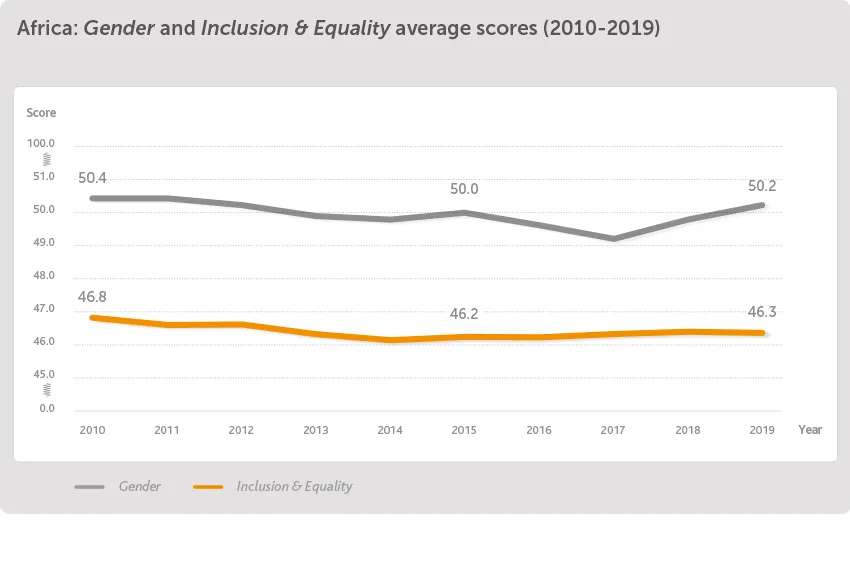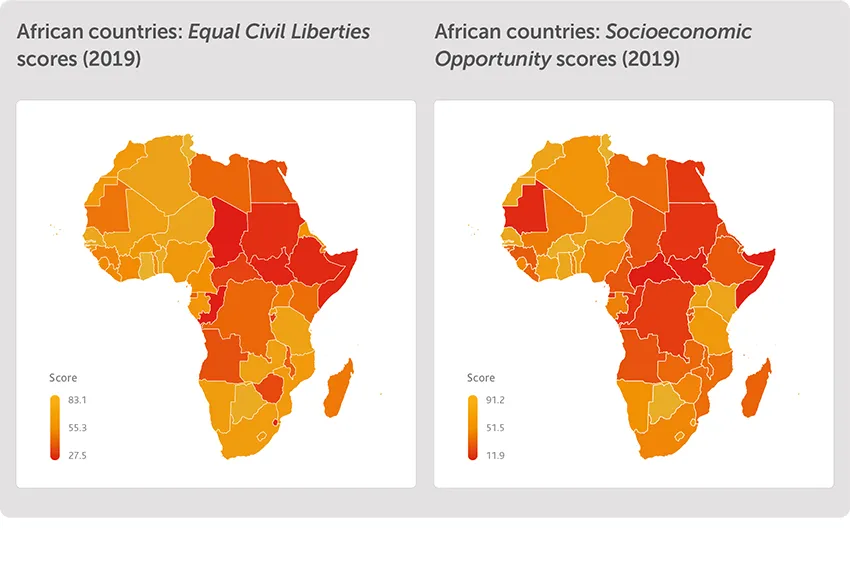Social justice
18 February, 2021
Sustainable development cannot be achieved without social justice – defined as the fair and compassionate distribution of the fruits of economic growth. In a globalised world, a strong social dimension is needed in order to achieve improved and fair outcomes for all.
To attain this, barriers related to exclusion and inequality, including gender equality must be broken down and steps towards decent work, social protection, improved living standards and poverty eradication must be taken.
The Ibrahim Index of African Governance (IIAG) includes key measures that can track the progress of Africa with regards to social justice.
Gender and Inclusion & Equality

Over the past decade (2010-2019), the African average score for the sub-categories Inclusion & Equality and Gender have declined, and both sub-categories had their highest score in 2010. However, both sub-categories have shown small improvement between 2015 and 2019.
A deterioration in the equal provision of civil liberties, along with a decline in equal political representation and the promotion of socioeconomic integration of youth have driven the downwards trajectory in Inclusion & Equality. While women’s civil liberties have also deteriorated relative to men’s, socioeconomic opportunities and access to public services for women have improved.

In 2019, Seychelles fares best when it comes to providing both equal civil liberties and socioeconomic opportunities to different strata of society. Ghana, Tunisia, Cabo Verde and Benin are also among the highest scoring countries when it comes to equal civil liberties, while Mauritius, Tunisia, Botswana and Burkina Faso are among the top five countries for equal socioeconomic opportunities.
Seychelles is the only country to feature among the top five performers regarding both women’s civil liberties and women’s socioeconomic opportunities in 2019. Rwanda ranks among the top five countries for the provision of equal civil liberties and socioeconomic opportunities for women but is only the 40th most equal in Africa when it comes to socioeconomic opportunity for other groups in society.
Social Protection
Driven by an accelerated decline in poverty reduction policies and to a lesser extent access to housing, Africa’s 2019 Social Protection score is the lowest over the decade. Access to housing and social safety nets are on average among the worst performing governance areas in 2019.
Social Protection scores vary widely across the continent. While Algeria, the highest scoring country, receives a score of 82.2 in 2019, Central African Republic, the lowest scoring country, receives a score of 9.6. Alongside Algeria, two other Northern African countries – Tunisia and Egypt – and two island states, Mauritius and Seychelles constitute the top five performers. South Sudan, Somalia, Guinea-Bissau and Eritrea are among the five worst performing countries.


